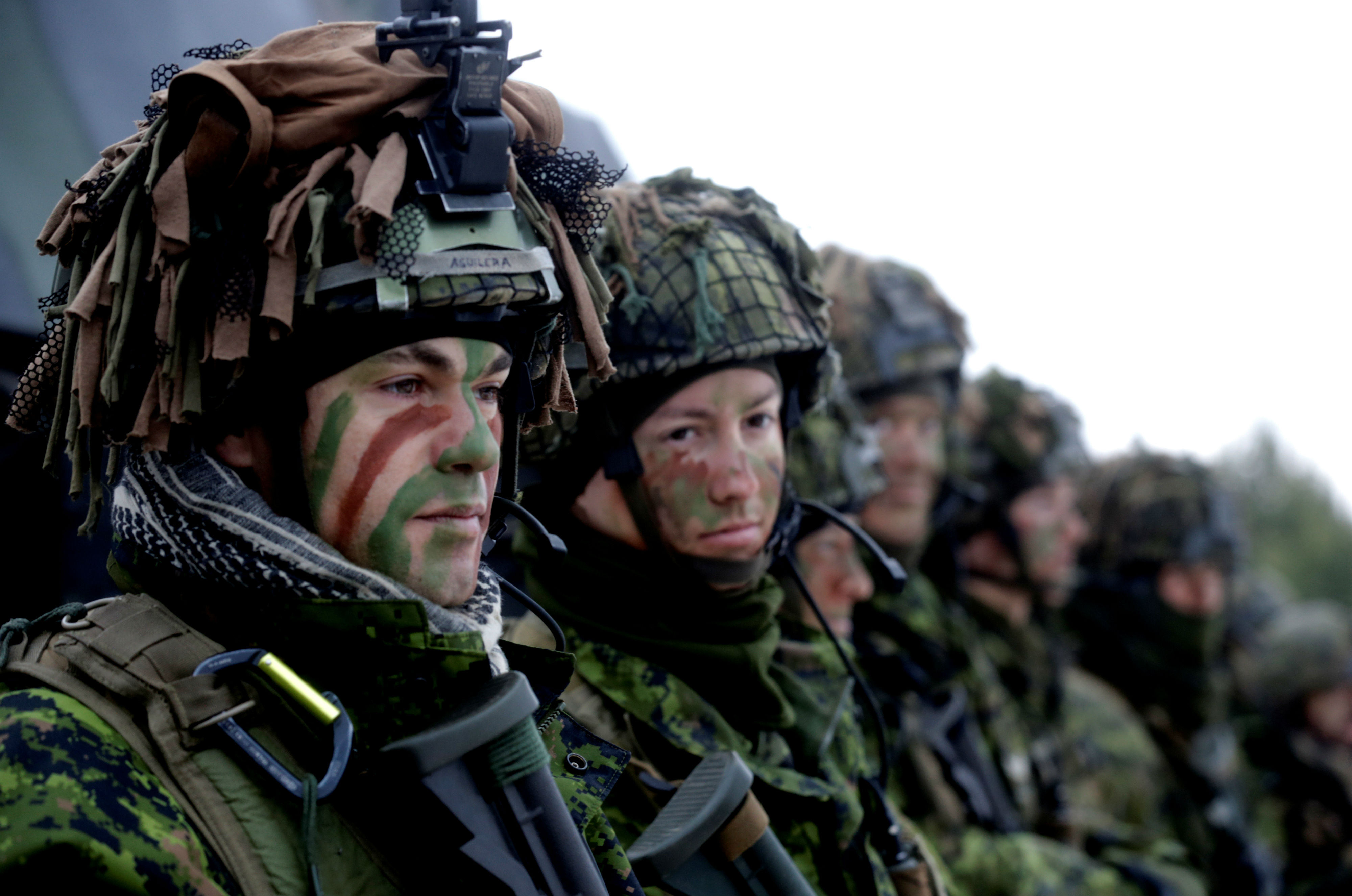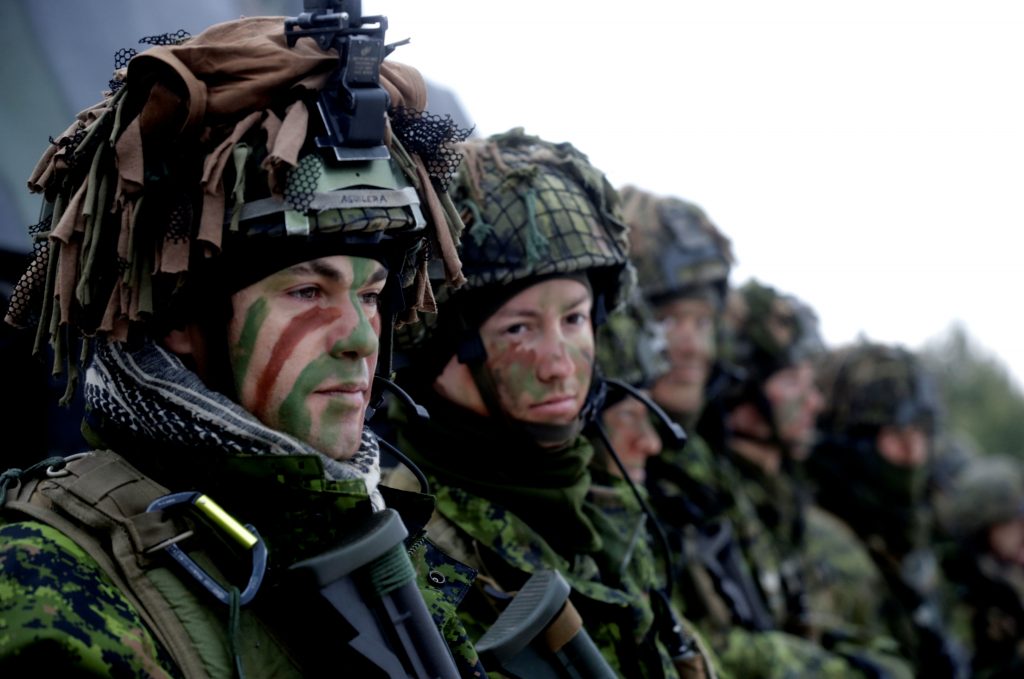 One of the great canards of our time is that the Baltic states are indefensible. Although the reasons for making this argument are rarely spelled out, they revolve around the presumption that Russia not only enjoys local conventional superiority, but also that NATO cannot and often implicitly should not defend them and thereby make a Russian-launched war a protracted one.
One of the great canards of our time is that the Baltic states are indefensible. Although the reasons for making this argument are rarely spelled out, they revolve around the presumption that Russia not only enjoys local conventional superiority, but also that NATO cannot and often implicitly should not defend them and thereby make a Russian-launched war a protracted one.
Few proponents of this argument bother to perform a true military analysis of the situation. While it is true that Moscow has enjoyed real superiority in the theater, NATO’s overwhelmingly superior capability if mobilized highlights the real problem with this argument. It either assumes or implicitly recommends a loss of will for NATO and a refusal to honor its commitment in the belief that Russia can quickly achieve a fait accompli that would render NATO counteraction ineffective or pointless, and would risk nuclear war. And of course, the latter alternative is simply unthinkable. Therefore we should simply give up the game.
Moscow’s military efforts have gone into primarily winning a brief short war replete with nuclear threats to intimidate NATO into believing that it cannot and should not defend the Baltics. Nevertheless, Russia has not attacked them, despite its current superiority in that theater. Putin and his team have shown that they do not want to risk a protracted war that Moscow would surely lose and that would inevitably cost them their power. To be sure, Russia’s efforts continue, despite signs that it may now be preparing for a longer war if necessary and perhaps for offensive action against Belarus. But effective conventional deterrence will continue to preclude a Russian offensive in the Baltics no matter what might occur elsewhere, and would also generate Russian uncertainties about what NATO might do in the case of an offensive into Belarus.
Thus the argument about the indefensibility of the Baltics betrays a political agenda and, intentionally or not, supports Russian interests in intimidating NATO into preemptive surrender. Moreover, this argument goes against history. In the Crimean War, the British fleet bottled up the Russian fleet. In 1914 during World War I, the outnumbered German Army in the east not only defended the Baltics but also inflicted a catastrophic defeat upon Tsarist armies at Tannenberg. In 1919-39, the British fleet and threat of allied defense held Soviet imperialism in check. And in 1941-45, the German Army held out until early 1945 when it collapsed. This chronicle does not even take into account the Winter War with Finland in 1939-40. Thus, the historical record shows that the Baltics can be defended against Russian forces that are formidable but not insuperable.
But the Baltic states can be defended only if the will is there to defend them, and is buttressed with the necessary investments toward that end. The counsel that they are indefensible is a self-validating fallacy.
NATO as a whole must continue its reinforcement of air, air defense, sea, submarine, ground (including armored), and electronic warfare forces to deter a Russian threat. But beyond simply enhancing its capabilities, NATO must overcome the logistical obstacles to getting troops to the front line and sustaining them during what would become a protracted conflict. Recent press revelations of the logistical difficulties facing NATO in Central Europe indicate that it is not enough simply to be able to create and deploy more conventional, non-nuclear forces in Central and Eastern Europe; it is also necessary to invest in the logistical capabilities necessary to their effective sustainment and to guarantee a continuous flow of men and material to the front.
While amateurs talk strategy, professionals talk logistics. Investing 2 percent of GDP in defense, a figure that many counties have still not attained, is not enough. That investment must be complemented by investment in measurable and effective capabilities and sustained if the threat is to be deterred. Indeed, deterring the threat by making it clear to Russia that any attack will inevitably devolve into a protracted conventional war will also negate the psychological value of Russia’s nuclear threats, which are predicated on the belief that NATO can be intimidated into surrendering. Once it becomes clear that Moscow cannot win a short war and impose a fait accompli without generating a protracted and general European war, its nuclear threats become much less credible, given NATO’s superior conventional and nuclear capabilities.
Unfortunately, it still remains true that to sustain peace in Central and Eastern Europe, we have to prepare for war; that is, we must develop an effective credible deterrence that includes solid logistical support across the continent for NATO forces. But the rewards of doing so far outweigh the risks involved. If anything, not undertaking these investments in capability and logistics magnify the risks of attack and of nuclear threat, and only further extend the seductive but invalid assumption of the indefensibility of the Baltic states. Not only must we demonstrate that the Baltics can and will be defended; we should make it clear that NATO expects every one of its members to do its duty to ensure European security. Otherwise, this canard about the Baltics being indefensible will become reality. And if that fiction is believed, then it will not only be the Baltics that cannot be defended.
Stephen Blank is a Senior Fellow at the American Foreign Policy Council.
Image: Lithuanian troops along with the other troops from 11 NATO nations take part in the exercise in urban warfare during Iron Sword exercise in the mock town near Pabrade, Lithuania, December 2, 2016. REUTERS/Ints Kalnins
